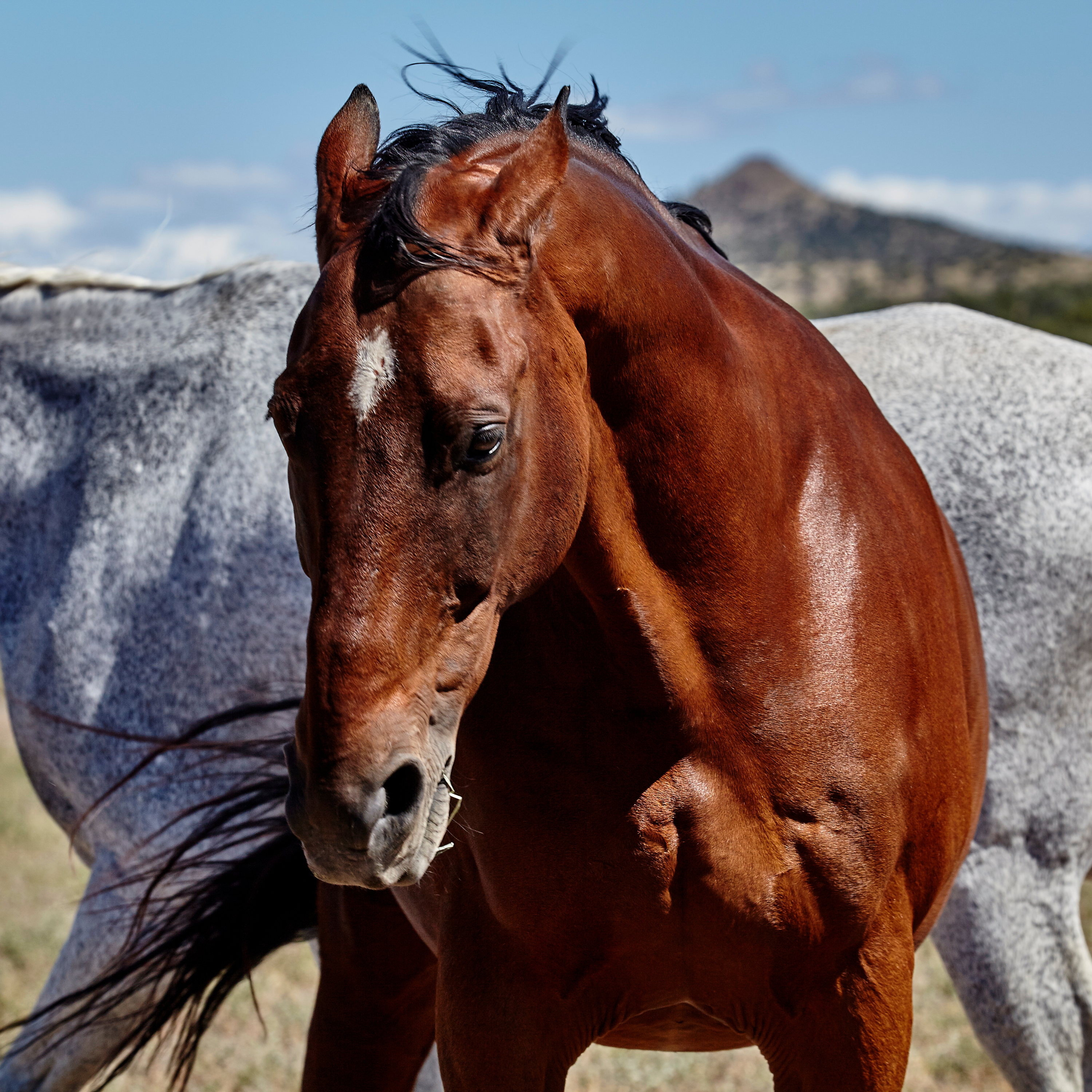
How does your horse’s environment affect their mood?
Through insightful anecdotes and practical advice, April sheds light on how power lines, water sources, and even natural elements like trees out in the pasture can impact a horse’s well-being.
Episode Transcription
Expand to read more...
Welcome to Holistic Horseworks talks. Join us with founder April love as we talk about equine care. Learn what you can do to keep your horse happy, healthy, rideable and sound through their 30s have a question you’d like to submit to the podcast, just email april@holistichorseworks.com for a chance to get it featured on the next episode.
Amy 0:30
In today’s episode, April talks about how our horse’s environment may be affecting their behavior, and their assimilation of minerals, and ultimately, their immune system.
I heard a story about a horse who is very agitated in his stall, periodically, he would pause the door move about not pacing, like he’s bored, but like Get me out of here. It was it was very unusual. The owner was quite perplexed,
April Love 1:03
more like agitated, like too much coffee and frazzled. So you need to look at, there’s a couple of things, power and water lines near his stall. So if they find outside the stall, but they go to a certain area, and then they just, you know, are really cranked up. They’re very sensitive to Geo lines in the earth where they come together, that’ll be like a certain area of the arena that all the horses don’t want to go down to that corner. And you actually have to clear that with copper wire. We can get into that another time. But yeah, there’s ways to clear that energy. But a lot of horses look where the power lines and the power plugins running on the walls or the other side of the wall or underneath, or even just main water lines. They just really feel that energy coming up their legs.
Amy 1:56
And is that something that you have seen be periodic? Or is it once it starts, it’s like always there, I was told that he’s been doing it like about six times over the last six months. So it’s not a continuous thing. And it was it was really sad. Because you couldn’t help him.
April Love 2:15
I would start trying to know what time of day, it might be happening. And if it’s like the same time, you know, look at okay, so it happened on the 14th last month, and it happened on the 10th this month, but it was always at like 4pm. So what’s going on at 4pm? Is it happening at nine in the morning? Is it happening at one in the afternoon? Is it always different? Or is it always similar?
Amy 2:43
The timing is similar. He’s turned out all day, it’s usually after he’s eaten. And then, like 6 7 o’clock.
April Love 2:53
Yeah, I would ask someone to kind of write it down and see if he can see a pattern. But I would still look to see about the water and the power because something might be getting turned on at that time a day. And they can feel the vibrations.
I went to look at some race horses when I was teaching in the Netherlands, one of my students said, Oh, you need to come look at these horses, because I’m doing bodywork on them, but we just can’t, you know, figure it out. And this lady pulls out this beautiful Arabian mare and she’s just rearing and body slamming and can’t even get near her. And we went and looked at her stone on the other side of the wall is where they plug in the electric fence. And it’s going tick, tick, tick. And it’s like you can kind of handle that drip in the sink for a little while until it kind of builds up.
And then so we had talked about grounding that she’s very sensitive to the the power goes out and then the grounding rods that you do the negative on is right next to the wall by her, you know on the outside and it was a stone building. You know, so if it’s wet stone, you’re still gonna get kind of an electric current. And I also told the owner that she needed more magnesium and a little bit more selenium. And this is not even being able to touch her just you know asking what she needed to calm down. She’s like, well I feed her all that and this woman that I met She’s a famous racehorse trainer over there and she’s into muscle testing she’s really good at it. I said you might be feeding it but now you need to ask if she can actually assimilate it. And she did a little muscle testing and she went No she can’t she’s not assimilating what I’m feeding her.
Right if you have tight acidic muscles and a tight body like this, you need to look at the surroundings the agitation and also the assimilation of you know what would calm her body down magnesium and selenium. Can she absorb it? No So that’s why you’ll see in my class in my workbook that I get into the zeolite detoxing of the animal to pull out mercury that blocks the magnesium, the magnesium absorption and sulfur, I believe is one that blocks is selenium absorption. And sulfur is also in MSM that a lot of people feed in Hawaii, we have the volcanoes. So all the horses are selenium deficient, but it’s because they can’t assimilate it not because it’s not in the feed.
So you really have to look at their environments, the time is there, like another horse that he’d rather be with it is it just one specific corner of the stall, and what’s on the other side of that wall, you can put in an electric meter outside of those plugs. And that’s why people aren’t supposed to be sleeping next to any kind of plug and you’ll find people with brain tumors, you know, all the walls and the new houses all have electric plugs on every single wall. And where the left wall and the right well comes out and meets is like where their pillow is. So they’re in line with all that and all it has to do is change your own electrical being and your own electrical pattern.
The same thing when you get in an airplane and that’s what jetlag is, you are an electrical, being energetic being sitting inside a big metal thing in the sky that is running an electric current that is not your own. So it’s kinda like, you know, you being really frizzy and frazzley so that’s what I’m saying, you know, are the lights coming on? Is something happening different in that electrical current field is something to look for. And see what’s going on with, you know, the time of day, what’s outside his stall that’s near that corner. You know, is all the waters being filled? So he can feel the water going through? Or the lights coming on? Or?
Amy 6:58
Yeah, I don’t know.
April Love 6:59
Well, when I do the distance readings, one of the four things is what anything in their environment, bothering them, you know, the hay that they’re eating, you know, something around them, EMFs, the water source and the water sources coming up. 95% of all my readings now is a big factor. And it doesn’t have to be polluted, it can be high iron, high calcium, something’s going to throw the horses out of balance. So I’m recommending those inline water filters that you would put on for a motorhome or an RV, just to at least get 30 to 70% out of what is in the water not there so they can drink more pure water.
The overhead fly systems in the barns are terrible for the horses. Oh, it’s all organic, but it’s not in the horses normal diet and it’s in their water. It’s on their hay it’s and their shavings that they’re breathing.
Amy 7:54
What is it?
April Love 7:54
Overhead flyspray systems and the big barns they’ll say oh, it’s permethrin or something flower from somewhere and it’s all natural, but it’s not in the horse’s natural diet. And is it is misting down on them like once every couple hours and they’re standing in the stall. So it’s in their water, it’s on their hay and it’s in the shavings that they’re breathing.
Amy 8:17
And it’s gonna go in their lungs,
April Love 8:18
Right.
Amy 8:19
Cause they’re gonna breathe the mist in
April Love 8:20
So whether it is you know, all organic or not, I mean, it is killing flies. It’s still not something that’s natural to their environment and it’s stressing their liver, their kidneys, their autoimmune.
Amy 8:33
Right.
April Love 8:34
You know, like feeding dogs chocolate is supposed to be poisonous to them.
Amy 8:37
Right.
April Love 8:38
You know, it’s not in their normal realm just like feeding corn oil isn’t good for horses, they don’t have a gallbladder. You don’t have a way to digest the oils and the fats.
Amy 8:49
Why do we have to supplement our horses feed?
April Love 8:52
So when people are saying why do I need to supplement my horse I didn’t have to 25 years ago Well, there was actually nutrition in the in the hay and grain 25 years ago for your horse where now it’s like, grow it fast. Get another crop, you know, because a farmer needs to be able to feed his kids. And there’s just not a lot of nutrition in it. It looks good.
Amy 9:12
No, it’s just filler. It just passes through the body.
April Love 9:15
Yeah, yeah. So we teach one to ask about the detoxing so they can assimilate the nutrition before you know people say well, what should I change in my horse’s diet and it comes back to can they assimilate what you’re feeding first. And that was when we talked about the zeolites and pulling out the heavy metals and everything that’s blocking the receptor sites and then muscle testing for what your horse needs because if they’re Mercury toxic, they’re not going to absorb magnesium and that’s like you know, some people that have fibromyalgia have found that when they do the detox and take the magnesium at night before bed, that they’re not having all the symptoms that they were having,
But that’s like the easy keeper horses are like my heart seems like it’s starving all the time and I’m trying to put them on a diet it and I feel so bad because he just knickers at me. But he’s so fat. It’s like you got to do a hay net, you have to let him work on something, you can’t just give him a half a flake of hay and expect them to lose weight when their body is saying I’m hungry, I’m hungry, I’m hungry and a slow feeders and the hay nets are just so great to give them that grazing back. But then we also have to look at you know, their base minerals and you need minerals to be able to absorb vitamins.
So it’s this whole long thing and by the time people send pictures to me for a distance reading and they get back this seven page report on everything that their horse needs, they’re overwhelmed and I’m like, but this is all the horses it says that in my distance reading please do not take this personal. This is all the horses on the planet now. Our toxins, our feeds, vaccinations and wormers that are stressful to their liver and kidneys and teaching about homeopathic nosodes, and it’s just a whole long process and all the classes I took they didn’t look at the whole horse. They’re just like, oh, yeah, here’s a massage class muscles tight. Massage it. Oh, okay, well, you got four crooked feet. Yeah, we don’t do feet. That’s a Farrier’s job. Well, greatm we have a crooked head and really bad teeth. Yeah, we don’t do that either.
Well, it’s a whole horse, you need to you know, I just kept taking classes and kept taking classes, so we actually look at the teeth and the head and the body and the feet and a coat. And even the smell of the horse’s breath. When I’m working on their atlas and axis. I’ll be like, Oh my God, this reeks. It smells so bad. He’s got some kind of infection going on in his head let’s go find it.
You know, and then none of the other body where classes would address all that and mine does. So yes, it’s overwhelming, because there’s so much but when you see it on every single horse, it’s just a step. Here’s step one here, step two, here’s step three. And then people are just like, Wow, your horse is really nice. He’s got a shiny coat, and I never bathe them. When you see my home study and you see Tiki and how glowy white he is. He never saw a bottle of shampoo, he was lucky if he got hosed off after a hot ride or we went swimming in the pond and, and he’s like, but he’s just white and he glows because it’s like the health from the inside.
When I do an hour session on a horse. They dapple out and they fluff up and the owners like oh my god, he gained 20 pounds and he got four inches longer and two inches taller because you unwound everything and we’re gonna address everything.
Amy 12:32
Yeah.
April Love 12:33
Yes, it might be overwhelming. And a lot of people come to my class, but they’re like, oh my god, I’m never gonna like it or the same ever again.
Amy 12:41
Another thing you said in the environmental issues is there are toxic trees. What trees are toxic to horses?
April Love 12:48
Um, you need to Google for what’s in your area. So when I was in, like Folsom, Coolcat, Auburn California area, whenever it rains spring and fall, we always had the tics jumping off, you know, and crawling up the horse’s legs. And so I would get that warpaint spot on the fly tick stuff to help keep them off because they would just come back with like 200 ticks on them.
And then in the fall that acorns would drop, I would come back from a trip and my horse had this huge fatty deposit before his tail up on the rump, which is where he kind of got it. And that was a toxicity level and the horses will just eat all these acorns that they find so the oak trees in California were really bad.
So you have to kind of look at you know, yellow tansy the plants in your area, what you want to, you know, take down and what’s an environmental factors. Working with an animal communicator, and her little pony kept foundering. You know, and I’ve changed everything, but you haven’t changed the environment, what’s in her pasture that she’s picking up and eating? Because they can eat something like 100 acorns a day and anything of one thing is going to be too much. They’re just little they just crunch them like you eatin popcorn, and you’re like, I have five oak trees out here and there’s no acorns on the ground. What’s wrong with this picture? So then I would give my horses more of the detox to I couldn’t go out there and do anything with all those acorns over three acres.
So it’s how do you support the horses system. If you know that’s going to be a stress be no your water is not great. Get that little eight or $10 inline filter that goes on a hose. Well, you know there’s the horses drink out of the pond fine just offer them one garbage barrel with this filtered water and see what they choose to drink. You know, that you know the trees are they’re great. So I have to probably not vaccinate and not chemical worm hime when he’s also having the stress of eating all the acorns. It’s looking at them environment and what’s going on with them.
When I did the 2000 miles of competition on Tiki my endurance horse in two years he received no vaccinations and no chemical wormers. We were doing them all year round, we went down to do 400 miles, sorry, 200 miles in four days at Death Valley Christmas and New Year’s. So I mean, we would do 150 or 200 miles on these multi day rides, and I would come back and pull shoes and turn them out. He had his blanket is grain and his yoga and his carrot stretches. But I wouldn’t touch him for 10 or 12 days after doing that 200 mile ride to let him detox and get his system back.
And you know, so it’s looking at your stresses and how can you support their system. We were third place for the whole west region 2007 2008 And I just boosted his immune system instead of vaccinating and worming and he’s gonna go drink water, you know from a water trap with 100 other horses hauled in from other states. So I would muscle test what does he need to do is immune system. Not oh my god, I got to vaccinate and stress is immune system with all this hauling and everything.
So if you go to a performance event, and you see horses that are tying up, the butt muscles get really tight and they can’t move and the vets usually put them on like banamine and flush and hope that you know liver and kidneys are doing okay. I’ve walked up to those people and say so you wormed or vaccinated in the last three weeks? Yeah, but that had nothing to do with this. I said, but then how did I know? It was a stress to the liver and kidneys so it couldn’t get rid of the lactic acid from the stress of falling to the event and the event. I’ve yet to see a horse that didn’t get vaccinations and wormers Tie up at a sporting event.
So when I was on that heavy competition schedule, I was supporting Tiki’s immune system, once they’ve had vaccinations, you know, they last seven or eight years in the body and he’d been on the racetrack so he’d had more than enough vaccinations for life. So and I can use like in my Horse 102 Book, you can use diatomaceous earth you can use a calcium Bentonite clay you can use the zeolites there’s different ways to get rid of the parasites. You don’t have to use 1200 pounds of ivermectin
I used to do the fecles, you know we take the poop bond to the bed and they look and it would always be zero and then all of a sudden I had tapeworm segments. Well in California it was hot and dry and we would water my lawn you know for half acre around the house so that our endurance horses could come home and have some green grass but that’s also where the dogs would poop. So yes, I had to give them ivermectin gold, but I didn’t have to give them 1200 pounds worth, I muscle tested for what did he need to clear the tapeworm and we did to other horses that were on the same grassy area. And he only needed 500 pounds out of that 1200 pounds to clear the tapeworms.
So, you know, a lot of people are giving too much wormer it’s poison and you stress the liver and kidneys you have to support the system. If you’re gonna give them poison to kill the worms, you have to support the system get the gut flora going again. You know the probiotics and everything. You can’t just I’ve seen people get bucked off. What’d you do, well I wormed my horse this morning, but it didn’t have anything to do with me riding him this afternoon. Well, he’s got a really sour stomach right now I can tell you that if you just fed him poison and it also burns the mouth lining so he’s really not happy with you right now.
Amy 18:51
April Today’s episode was very interesting, because obviously there are so many influences on our horses environment that we can’t always see very easily but impact them greatly. So this has been very, very insightful. Thank you so much.
Speaker 1 19:09
Thank you for tuning in to another episode of Holistic Horseworks Talks with April love. Remember to check the show notes for links to all the resources mentioned in this episode. Have a question you’d like to submit to the podcast? Email april@holistichorseworks.com for a chance to get it featured on the next episode. Loved this information, share it with your horse friends, they’ll find it helpful too. To learn more, visit holistichorseworks.com. And before you go, make sure you have a copy of our free ebook, Horse 101: everything you wish you had known before you got your first horse at horseacademy101.com
Transcribed by https://otter.ai
Consider Hidden Water and Power Lines
Horses are remarkably sensitive souls. They can pick up on the slightest vibrations, frequencies, and energy shifts in their environment. For instance, if your horse seems repeatedly agitated while in its stall, it might not be just a random mood swing. There could be something about the area, like a hidden power line, source, or outlet causing the distress, which can emit irritating sounds or sensations. Along with power lines, you’ll also want to consider water lines. Keep in mind that these things which may go unnoticed to you, especially since you only come and go from the barn occasionally, might be driving your horse bonkers because they have to live with it every day!
If your horse is acting up, pay attention to the timing. Is it happening on certain days, or at certain times of the day? Do they fidgety in the morning at watering time? Or maybe only on days when a tractor is being used outside? Perhaps when someone runs a loud generator or tool? This is your horse’s way of telling you something is bothering them, and it may take a keen eye to figure out the hidden cause.
How Environment Affects Nutrition
A horse’s environment plays a key role in determining nutritional intake and absorption. For example, high iron or calcium content in water can hinder mineral absorption, while exposure to sulfur compounds may interfere with the assimilation of essential nutrients like selenium.
There are two major issues here. One is that because of the quality of the water, grain, hay, or air your horse is receiving, they may not be getting all of the nutrition they need in the first place. The second is that even if they are getting proper nutrition from high-quality feed or supplements, there could still be something in the environment that is blocking them from absorbing nutrients properly.
You can help your horse increase their ability to absorb nutrients by providing access to clean, filtered drinking water. I like to use an inline water filter attached right to the hose, similar to what you use for RVs. Detoxing your horse regularly, especially after worming or vaccinating is also essential. If their liver is too busy processing toxins, then it won’t be processing nutrients. I always recommend Natural Cellular Defense (NCD) drops as a gentle solution to detoxing.
What’s in the pasture?
If a horse is turned out to acres of pasture, they may have access to all kinds of things you’re not privy to. You’ll especially want to look out for potentially poisonous, toxic, or otherwise harmful plants and trees. This will be different from region to region, so I recommend researching commonly toxic plants for pets and horses in your area. For instance, acorns may seem harmless, but if your horse munches on too many of them, it can lead to trouble. Keep an eye on what’s in their grazing space to avoid hidden surprises.
Even so, rounding up hundreds of acorns or cutting down old-growth oak trees might not actually be feasible. In situations like this, I’ve used Natural Cellular Defence (NCD) drops to gently detox on a regular basis.
Get a Distance Reading
A distance reading for your horse can be a powerful tool in understanding if their environment is impacting them negatively. As a skilled equine wellness practitioner, with just a few pictures and the information you provide, April can often identify any environmental stressors and nutrition deficiencies your horse may be experiencing, as well as offer insight into what you can do to help.
Foals Need Bodywork, Too!
Early bodywork can profoundly impact your foal's development, ensuring they grow into healthy, balanced, and well-adjusted adults. Let's talk about essential timing and techniques of early bodywork, helping you recognize signs of misalignment and understand the benefits of starting bodywork from a young age.
Summer Heat and the Best Electrolytes for Horses
As the summer heat sets in, it's important to consider your horse's electrolyte needs. Proper electrolyte supplementation can help keep your horse happy, healthy, and performing their best even in the hottest weather. Discover the importance of electrolytes and get our top recommendation for the best electrolytes, along with tips on when and how to use them effectively.
Tips to Tune-Up Your Horse in Spring
As the vibrant colors of spring emerge and the weather warms, horse owners are gearing up to provide their equine companions with the care they need for the season ahead. Here are some essential spring tune-up tips to keep your horse happy, healthy, and ready for action.
Maintaining Healthy Weight in Older Horses with Vegan Fat Sources
In this episode, our founder, April Love, shares valuable information on maintaining the well-being of older horses, focusing on a simple recipe for a vegan fat source. The discussion delves into practical tips for horses with missing teeth, difficulty gaining weight, and the importance of identifying and addressing insulin resistance.
Dealing with Laminitis, Foundered Horses, and General Hoof Health
Horse’s hooves have to support the entire body. Hoof care must be the foundation for complete health care. In this episode, April discusses various hoof issues and effective solutions for maintaining healthy hooves. Whether you’re dealing with laminitis, foundered horses, or general hoof health, these insights can make a significant difference.
Are you ready to treat a wound in an emergency?
In this episode of Holistic Horseworks, April retells a story about an incident in one of her clinics. Despite being told repeatedly to NOT tie the horse to the corral panels, one student did just that. When the horse spooked, the corral panel hit another student in the head and caused a small but bloody gash. While her students were wondering what to do, April stepped in to treat the wounded student.
Caring for Older Horses: Arthritis, Mobility, Nutrition, and Hooves
In this episode of Holistic Horseworks Talks, April Love shares helpful practices for caring for older horses. She offers information not only about supporting the symptoms of arthritis but even more importantly, preventative measures to keep it at bay for as long as possible. April also shares many other useful tips for aging equines such as choosing healthy feed to keep on weight, the importance of daily stretching, and even hoof care.
How does your horse’s environment affect their mood?
In this episode of Holistic Horseworks Talks, host April Love delves into the often unseen environmental factors that can significantly affect a horse’s behavior, mineral assimilation, and overall immune system. Through insightful anecdotes and practical advice, April sheds light on how power lines, water sources, and even natural elements like trees out in the pasture can impact a horse’s well-being.
Emotional Healing for Horses
Horse care is more than just the physical— there's also an emotional component. Emotions can it directly affects the horse's behavior, performance, and overall health. It's also important to consider how the emotions of the owner can affect the emotions of the horse, and vice versa.
The Importance of the First Rib in Horses
Join us in this episode of Holistic Horseworks Talks with April Love as we explore the often-overlooked significance of the first mobility rib in equine anatomy. She sheds light on how misalignments of the first rib can lead to various issues with people such as thoracic outlet syndrome, frozen shoulder, tendonitis, bursitis, and carpel tunnel syndrome. So think about all the things it could be impeding your horse's freedom of movement in the front end. This is what starts the high-low hoof syndrome, horse not picking up right or left lead, mysterious lameness, kissing spine, behavioral issues, and even roaring in horses requiring expensive tie-back surgery.

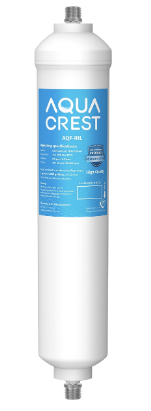
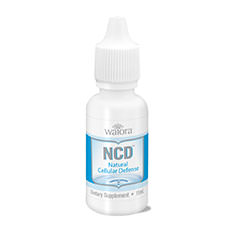
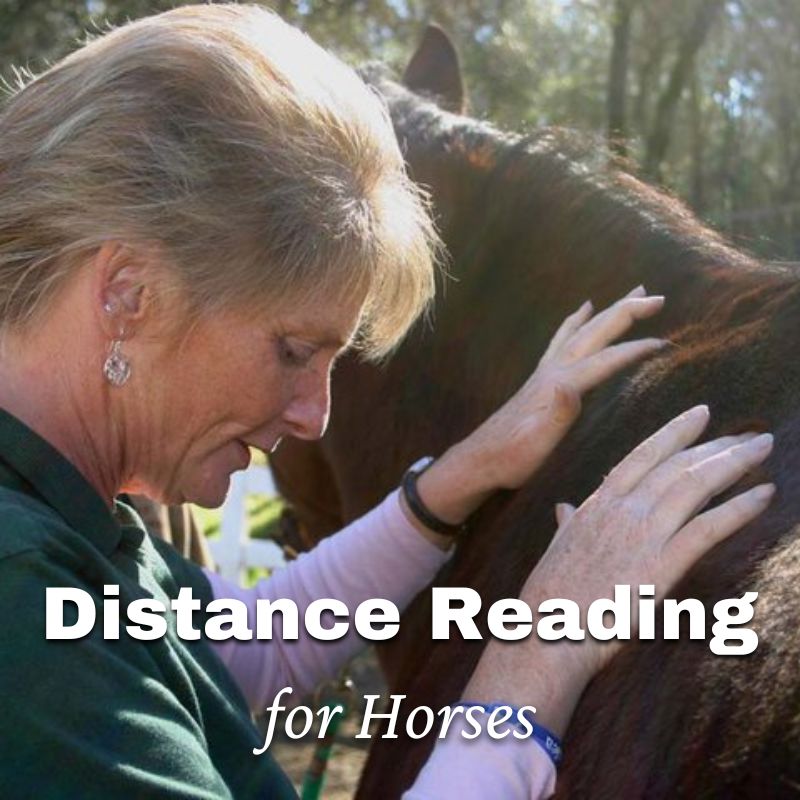
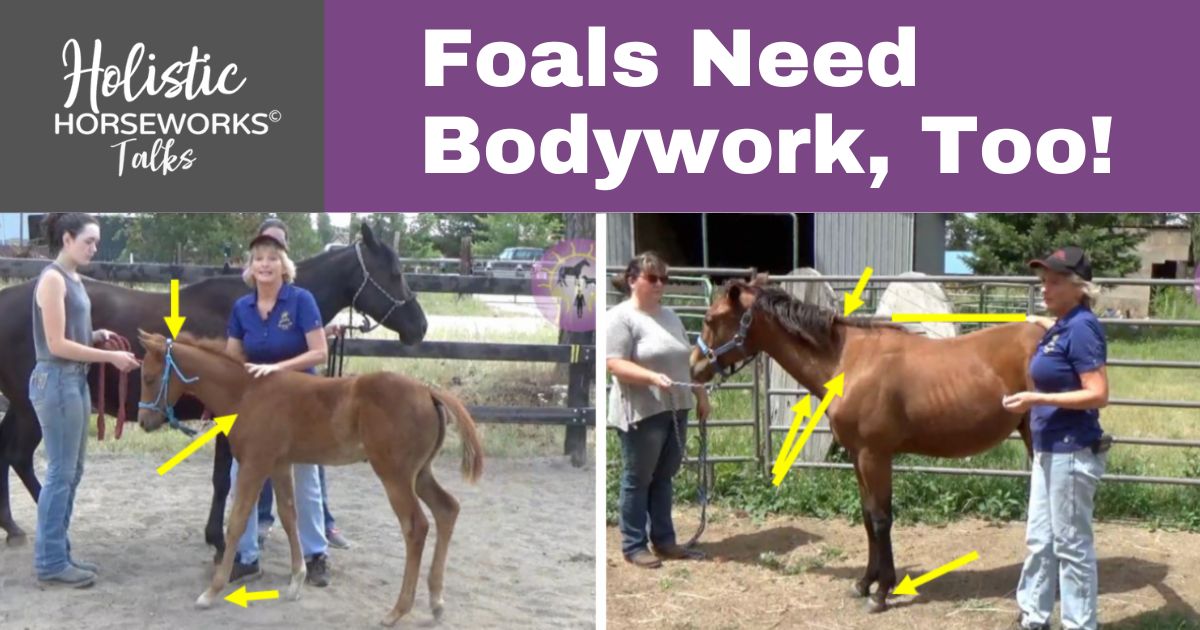
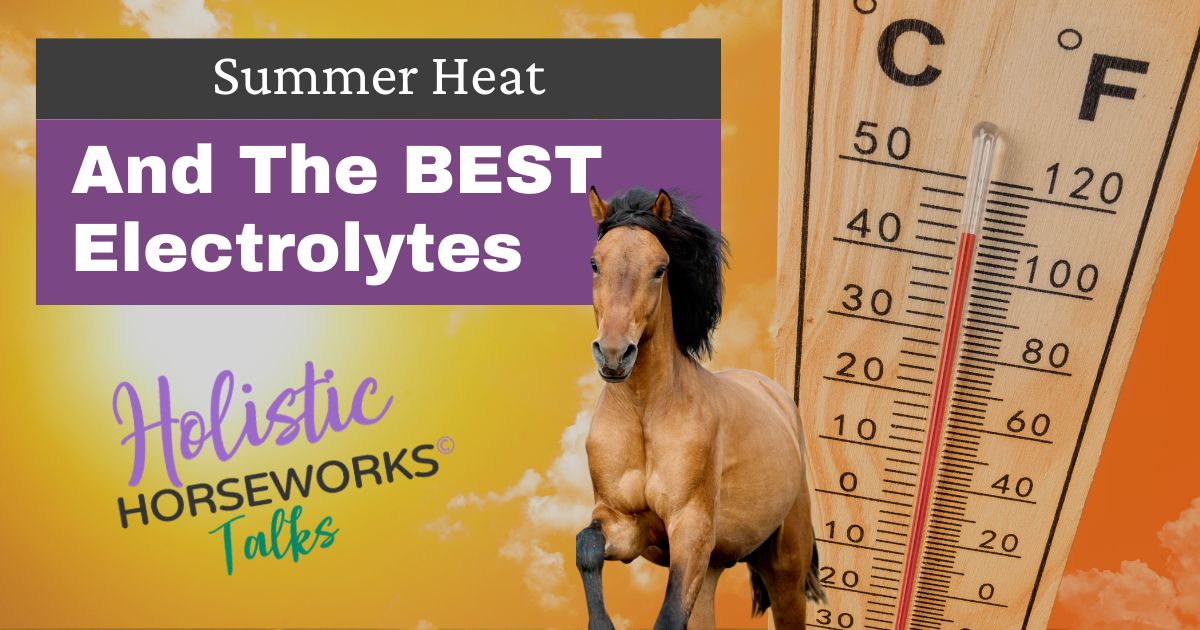
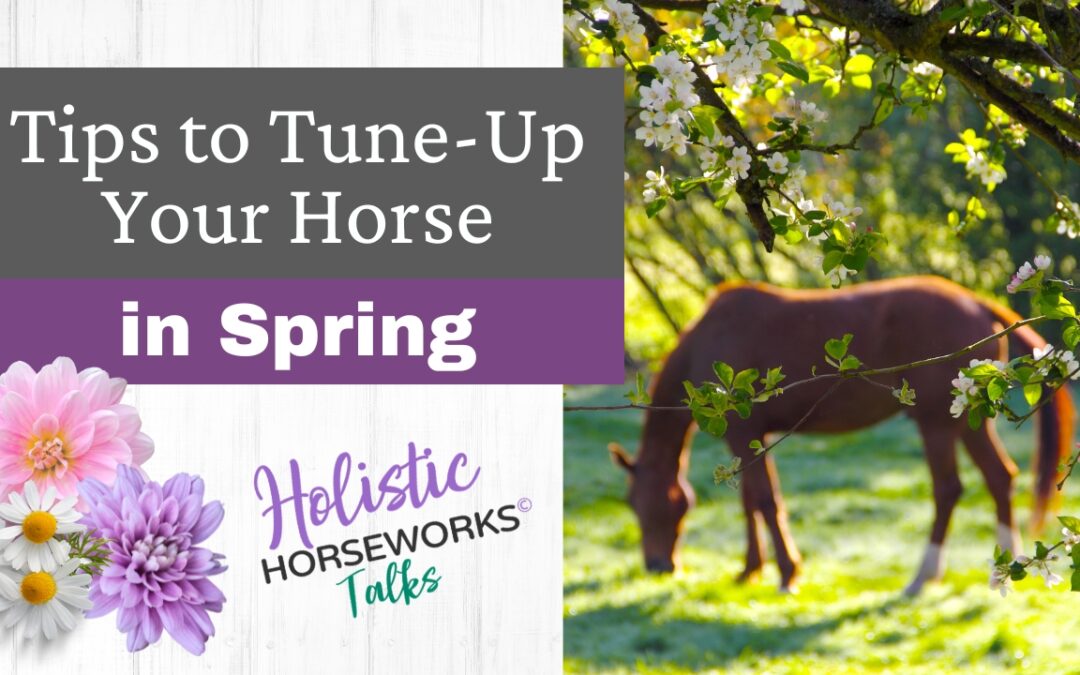
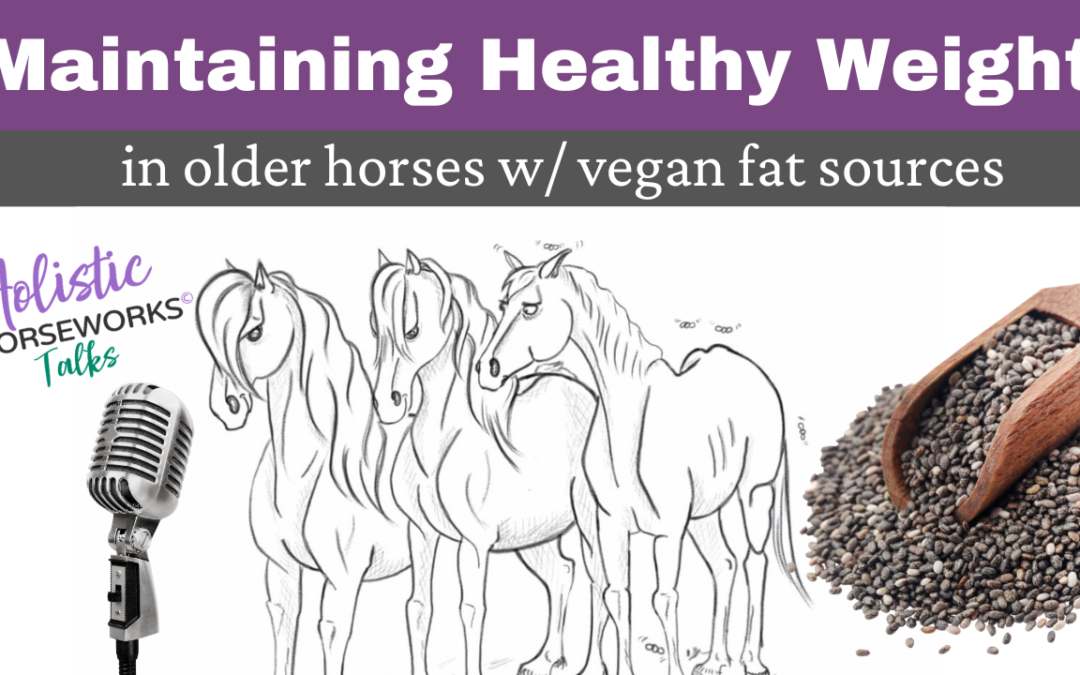
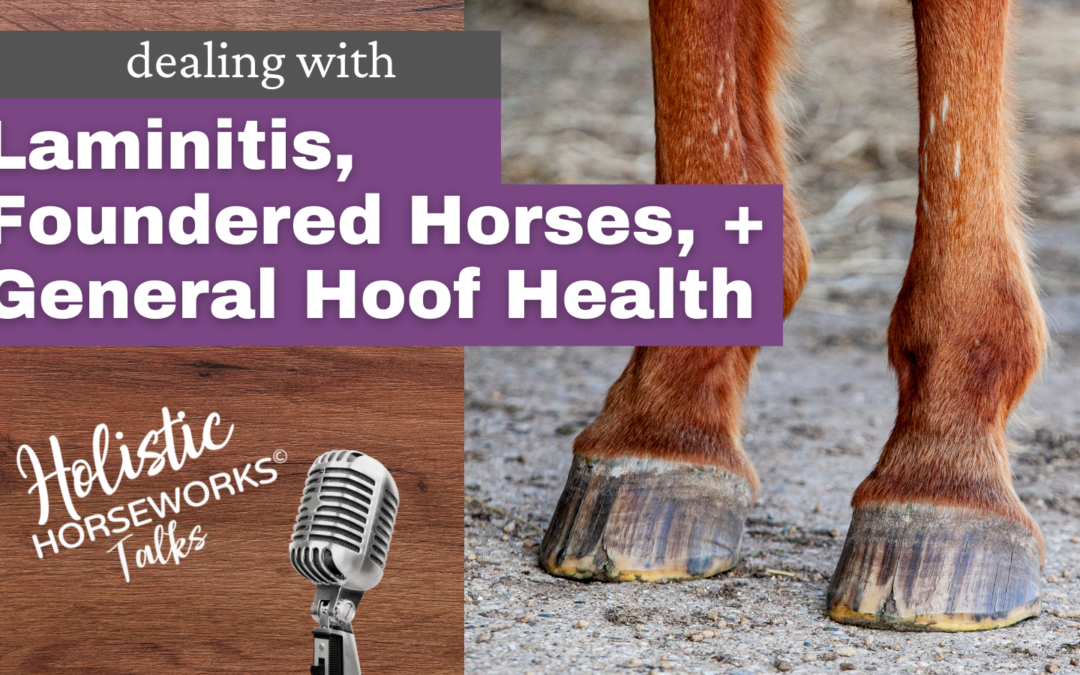

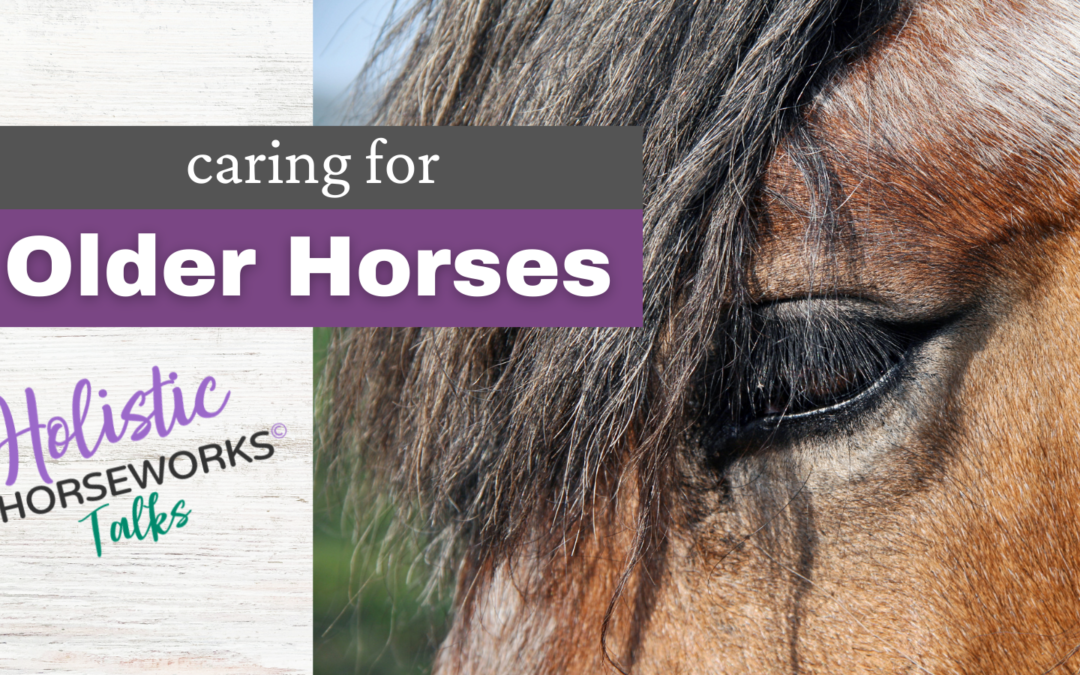
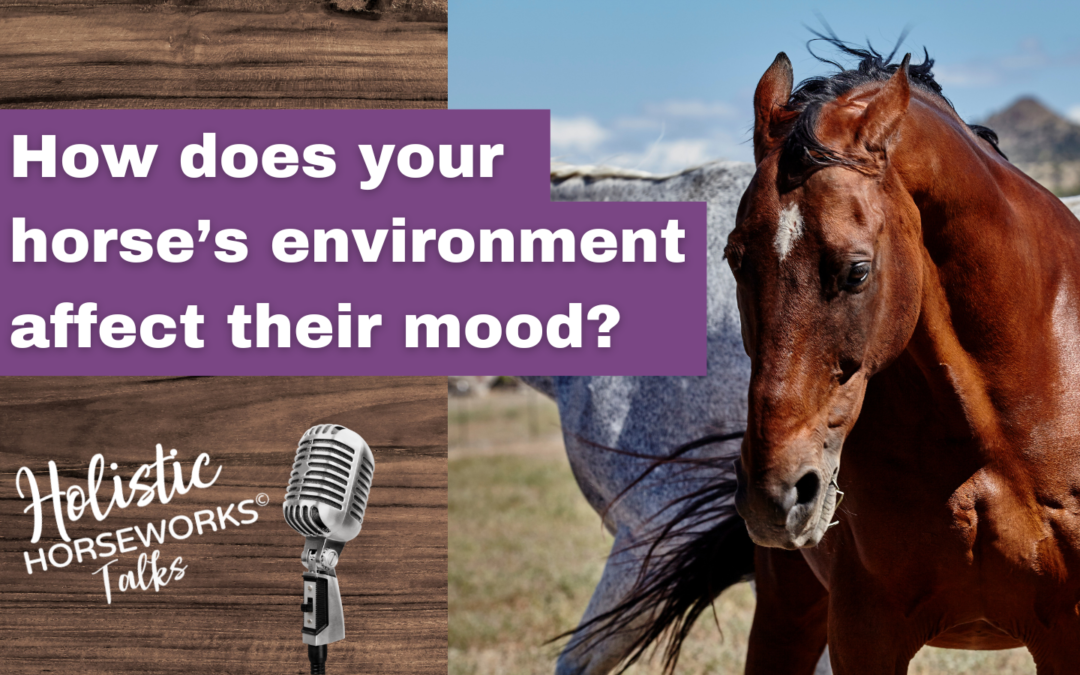
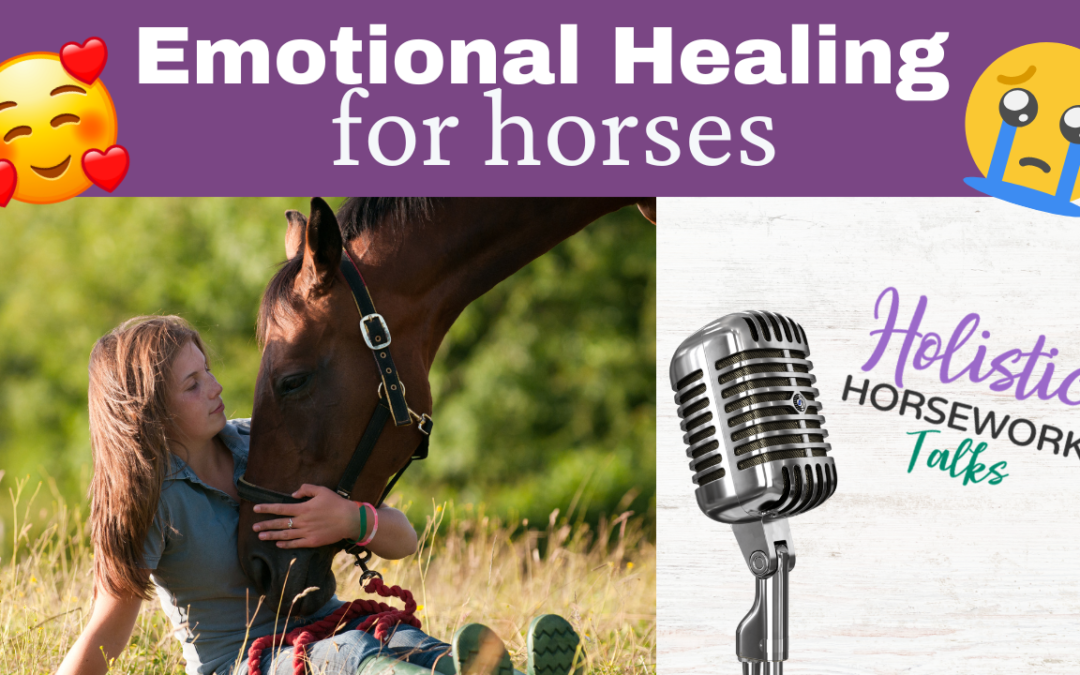
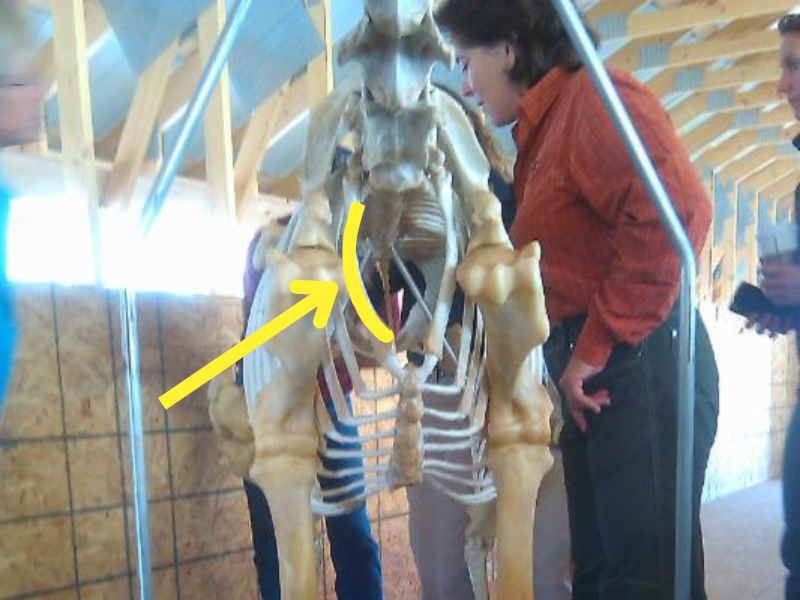
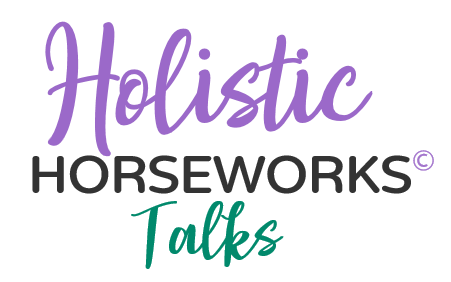
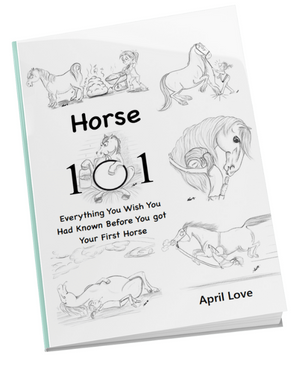
![Complete Level 1 & Level 2 Home Study + Private Training Package [NO DVD]](https://holistichorseworks.com/wp-content/uploads/2022/08/Level-1-and-Level-2-complete-home-study-and-training-package-400x400.jpg)
![Level 1 "Equine Musculoskeletal Unwinding" Home Study -Watch Instantly [NO DVD]](https://holistichorseworks.com/wp-content/uploads/2022/08/Level-1-Home-Study-400x400.jpg)
![Level 2 “CranioSacral Unwinding & Advanced Applied Kinesiology” Home Study - Watch Instantly [NO DVD]](https://holistichorseworks.com/wp-content/uploads/2022/08/Level-2-Home-Study-400x400.jpg)
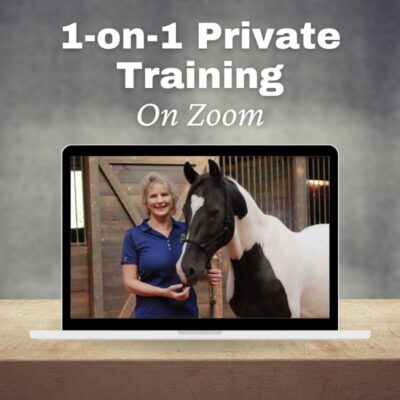
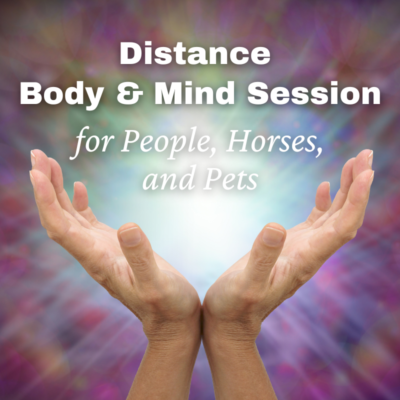
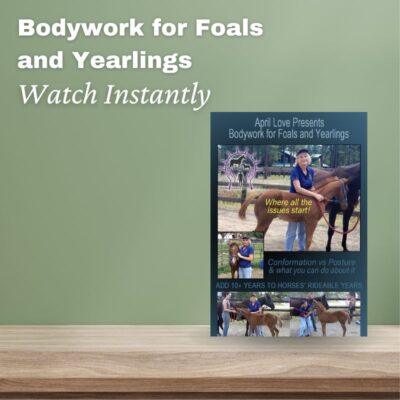
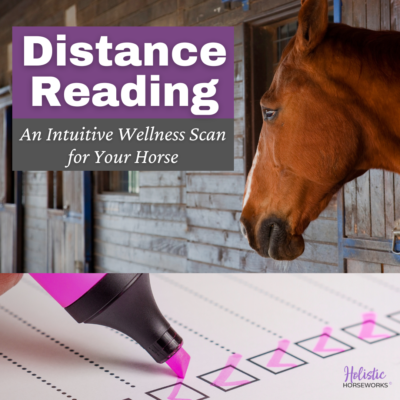
![Equine CranioSacral Energy Work -Watch Instantly [English and French]](https://holistichorseworks.com/wp-content/uploads/2022/09/equine-cranial-sacral-energy-work-watch-instantly-400x400.jpg)